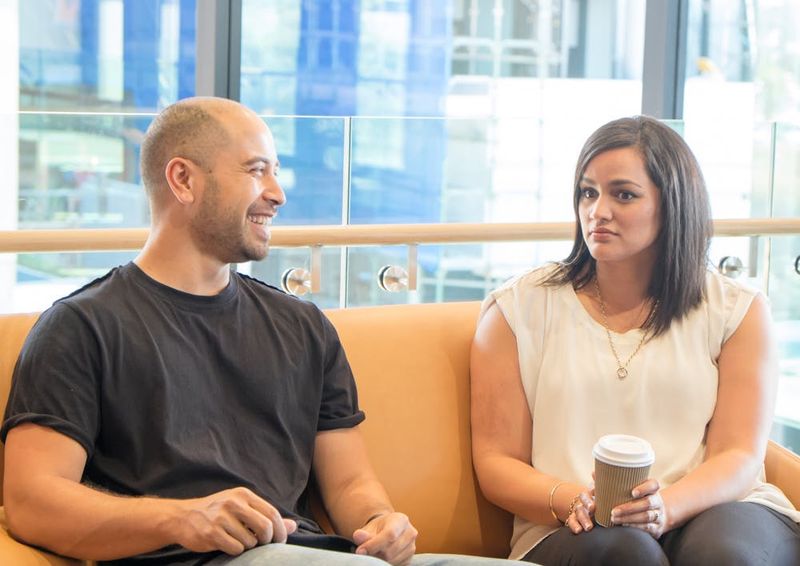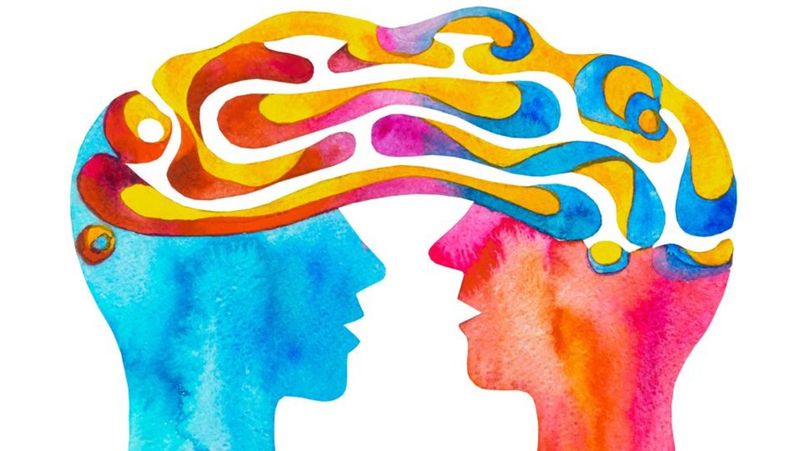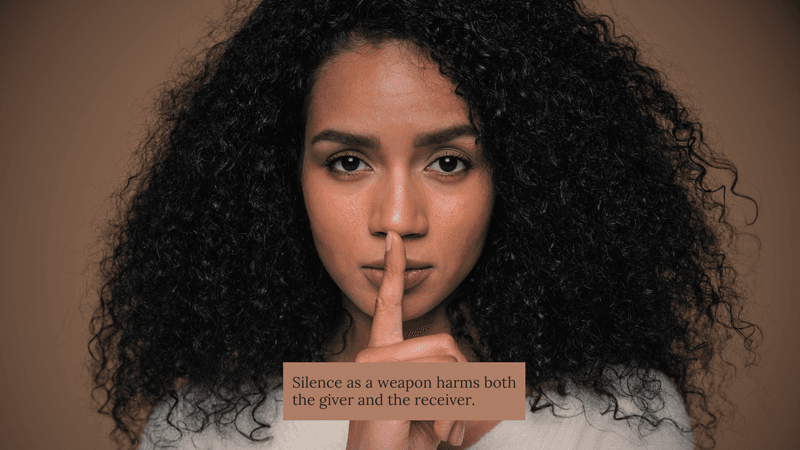There’s a difference between having boundaries and being self-absorbed. Between confidence and entitlement.
If these behaviors sound familiar, it’s not “just your personality.” It’s a pattern that shows you only care about one thing: te stesso. Here are 15 signs the problem isn’t everyone else.
1. You only show up when it benefits you
Quando you only appear in situations that offer you some advantage, it’s clear you prioritize yourself above others. You might think you’re being practical, but this behavior shows a lack of genuine interest in people.
Friends notice when you only grace them with your presence if there’s something in it for you—be it food, fun, or favors. Real relationships aren’t transactional. If you’re only around for the perks, people will eventually see the pattern and question your motives.
Consistency in presence, regardless of personal gain, builds trust and connection. Consider attending events without an ulterior motive; it might lead to more meaningful interactions. True friendships are built on mutual respect and support, not just convenience.
Reflect on your intentions next time you make plans. Are you there for them, or merely for yourself? People appreciate sincerity and the willingness to be there, even when there’s nothing to gain.
2. You constantly interrupt people mid-story
If you find yourself frequently cutting into stories or conversations, you’re likely more interested in what you have to say than in listening. Interrupting isn’t just rude; it shows you value your voice over others’. This habit can alienate friends, leaving them feeling unheard and undervalued. Instead of truly engaging, you’re waiting for your turn to speak, often dominating the conversation.
Listening is an art that requires patience and empathy. Let others finish their thoughts instead of hijacking their narratives. This will not only enrich your understanding but also strengthen your connections. Conversations should be a balanced exchange, not a monologue.
Try to be conscious of your listening patterns. Practice active listening by focusing fully on the speaker and resisting the urge to interrupt. Your relationships will flourish when others feel respected and genuinely heard.
3. You dismiss others’ feelings as “too sensitive”
Dismissing someone’s feelings as overly sensitive is a quick way to undermine their emotions while elevating your own perspective. This habit reflects an unwillingness to acknowledge others’ emotional experiences, ultimately diminishing their value. Recognizing emotions doesn’t mean you have to agree, but it means respecting their validity.
Empathy isn’t about understanding only when it’s convenient; it’s a constant practice of acknowledging others’ realities. When you brush off feelings, you’re not being strong or rational—you’re simply being dismissive. This behavior can damage relationships, as people feel they cannot share openly with you.
Challenge yourself to respond with empathy instead of judgment. Ask questions if you don’t understand, and listen without prejudice. This will foster a supportive environment where emotions are respected and valued, leading to deeper, more meaningful relationships.
4. You take, but rarely give without being asked
If your hand is always out to take but rarely extended to give, you’re displaying a one-sided approach to relationships. Expecting others to meet your needs while you only reciprocate when prompted is a clear sign of self-centeredness. Genuine care and generosity aren’t reactive but proactive.
Think about your contributions to your relationships. Are you as willing to offer support as you are to receive it? Relationships flourish on mutual effort and shared resources. Being there for others without waiting to be asked shows that you value them beyond what they can do for you.
Start with small gestures; they often mean the most. Whether it’s lending a hand, offering a listening ear, or extending a kind word, these actions demonstrate heartfelt care. Over time, giving selflessly fosters stronger bonds and a sense of community.
5. You never apologize unless it gets you something
Apologies should come from a place of genuine remorse, not from an opportunity for personal gain. When apologies are transactional, they lose sincerity and reveal manipulative tendencies. If you only say sorry when it benefits you, people will soon see through the façade.
True remorse involves acknowledging wrongs and making amends without expecting anything in return. It’s about connection, not leverage. Authentic apologies can mend bridges and heal wounds, while conditional ones only widen the gap between people.
Reflect on your motives next time you apologize. Are you seeking forgiveness, or are you just trying to smooth things over for personal advantage? Demonstrating genuine regret and a willingness to change will earn you more respect and rebuild trust in your relationships.
6. You expect praise for basic decency
Expecting recognition for basic acts of decency suggests entitlement and a skewed perception of your role in the world. Holding doors, saying thank you, and being polite are fundamental social behaviors, not extraordinary feats. If you demand praise for such actions, you’re likely more interested in validation than genuine kindness.
True decency is about doing the right thing because it’s right, not because it draws attention or accolades. People notice when your intentions are authentic versus when you’re chasing recognition. Genuine acts of kindness speak for themselves and don’t require a spotlight.
Focus on cultivating empathy and respect without the need for external validation. Let your actions reflect your character quietly. Being decent, for its own sake, enriches your life and positively impacts those around you.
7. You guilt people for setting boundaries
If you’re making others feel guilty for drawing lines in the sand, you’re prioritizing your desires over their well-being. Boundaries are essential for personal integrity and healthy relationships. Guilt-tripping someone for asserting themselves demonstrates a lack of respect for their autonomy.
Recognize that boundaries are not personal affronts but necessary components of respectful interactions. When someone says no, it’s an expression of their needs, not a rejection of you. Pressuring others to bend to your will can fracture trust and erode relationships.
Encourage open dialogue about boundaries and respect them when set. Appreciate the courage it takes to establish them and the trust it builds. Healthy relationships thrive on mutual respect, not on coercion and guilt.
8. You make fun of people’s vulnerabilities
Mocking others for their vulnerabilities reveals a deeper insecurity and lack of empathy. Making fun of someone’s fears, anxieties, or shortcomings isn’t just insensitive—it’s harmful. This behavior is often masked as humor but is a thin veil for cruelty.
Everyone has insecurities, and poking fun at them only amplifies their impact. Instead of cultivating empathy, you prioritize your amusement over others’ feelings. This can leave people feeling isolated and diminish trust in your relationship.
Consider fostering an environment where vulnerabilities are met with support, not ridicule. Treat others’ sensitive areas with care, as you would want yours to be treated. This approach not only strengthens bonds but also encourages personal growth and resilience.
9. You treat kindness like weakness
Viewing kindness as a vulnerability reflects a misunderstanding of true strength. Dismissing empathetic behavior as weak reveals a limited perspective on human connection. Empathy and compassion require strength, as they involve putting others’ needs before your own desires.
Kindness is a powerful tool for building bridges and nurturing relationships. When you view it as a flaw, you miss out on its transformative power. This skewed viewpoint can lead to a life lacking in meaningful connections and emotional richness.
Challenge yourself to see the strength in kindness. Recognize the courage it takes to extend compassion and the positive impact it has on the world around you. Embracing empathy as a strength will enrich your interactions and broaden your understanding of others.
10. You constantly center yourself in every conversation
If every conversation somehow circles back to you, it’s clear you’re more invested in your narrative than in engaging with others. Centering yourself can alienate amici who feel their voices are overshadowed by your constant need for attention.
Conversations are about exchanging ideas, not broadcasting your latest experiences. When you dominate discussions, you miss out on learning from others and strengthening connections. Those around you might begin to feel like mere spectators in your one-person show.
Shift your focus outward. Ask questions, listen actively, and let others lead the conversation sometimes. You’ll discover the joys of shared dialogue and a richer tapestry of relationships. By balancing the conversational stage, you foster mutual respect and understanding.
11. You refuse to support others unless you’re in the spotlight
Supporting others should be about lifting them up, not vying for attention. If you only offer support when it benefits your image or puts you in the limelight, it’s self-serving rather than altruistic. True support comes from a place of generosity, not competition.
Relationships thrive on mutual encouragement, not envy. When you withhold support because the focus isn’t on you, you’re prioritizing your ego over genuine connections. This can leave those around you feeling unsupported and undervalued.
Practice celebrating others without needing to share the spotlight. Acknowledge their achievements and offer genuine encouragement. This strengthens bonds and fosters a community of mutual respect and admiration.
12. You weaponize silence when you don’t get your way
Using silence as a tool for manipulation is a subtle but potent form of control. When you withhold communication to assert power or punish others, it creates a toxic environment. This tactic can strain relationships, leaving others walking on eggshells around you.
Silence in response to conflict can be constructive only when it’s a reflection period, not a weapon. True resolution comes from honest dialogue and mutual understanding. Weaponizing silence erodes trust and fosters resentment in your relationships.
Aim for open communication, even when emotions run high. Express your feelings honestly and invite others to do the same. This approach will cultivate a healthier, more respectful dynamic and strengthen your connections.
13. You judge others for things you secretly do too
Hypocrisy erodes trust faster than most other behaviors. Judging others for actions or traits you secretly possess reveals a lack of self-awareness and integrity. It’s easier to criticize from a distance, but this approach lacks honesty and accountability.
No one is perfect, and recognizing shared shortcomings fosters empathy and connection. When you judge others, you’re distancing yourself not only from them but also from understanding your own behavior. This can lead to isolation and a lack of genuine relationships.
Cultivate introspection and mindfulness. Acknowledge your flaws and work on them, instead of projecting them onto others. This transparency will not only improve your relationships but also enhance your personal growth.
14. You demand forgiveness but hold grudges
Demanding forgiveness while clinging to grudges highlights a double standard in your expectations. Seeking forgiveness requires humility and sincerity, while holding grudges reflects stubbornness and resentment. This behavior undermines the very essence of reconciliation.
Forgiveness is a two-way street, necessitating both giving and receiving with grace. When you demand it but refuse to offer it, your relationships suffer from unresolved tensions and lingering animosity. This can create a cycle of conflict and emotional distance.
Embrace forgiveness as a mutual act of healing. Let go of past grievances and approach conflicts with an open heart. This practice will lead to deeper understanding and more harmonious relationships, creating space for growth and connection.
15. You only see people as tools, not humans
Viewing people merely as a means to an end strips away the humanity from your interactions. When you treat relationships as transactions, you miss out on the richness of genuine connection. This perspective reduces people to their utility, disregarding their intrinsic value.
Relationships built on empathy and respect lead to trust and collaboration. If you only focus on what others can do for you, you’ll find yourself surrounded by shallow, unfulfilling interactions. This approach limits your personal and professional growth.
Shift your perspective to appreciate individuals for who they are, not just their contributions. Foster connections based on mutual respect and understanding. This will not only enrich your relationships but also create a more supportive and compassionate environment.
















